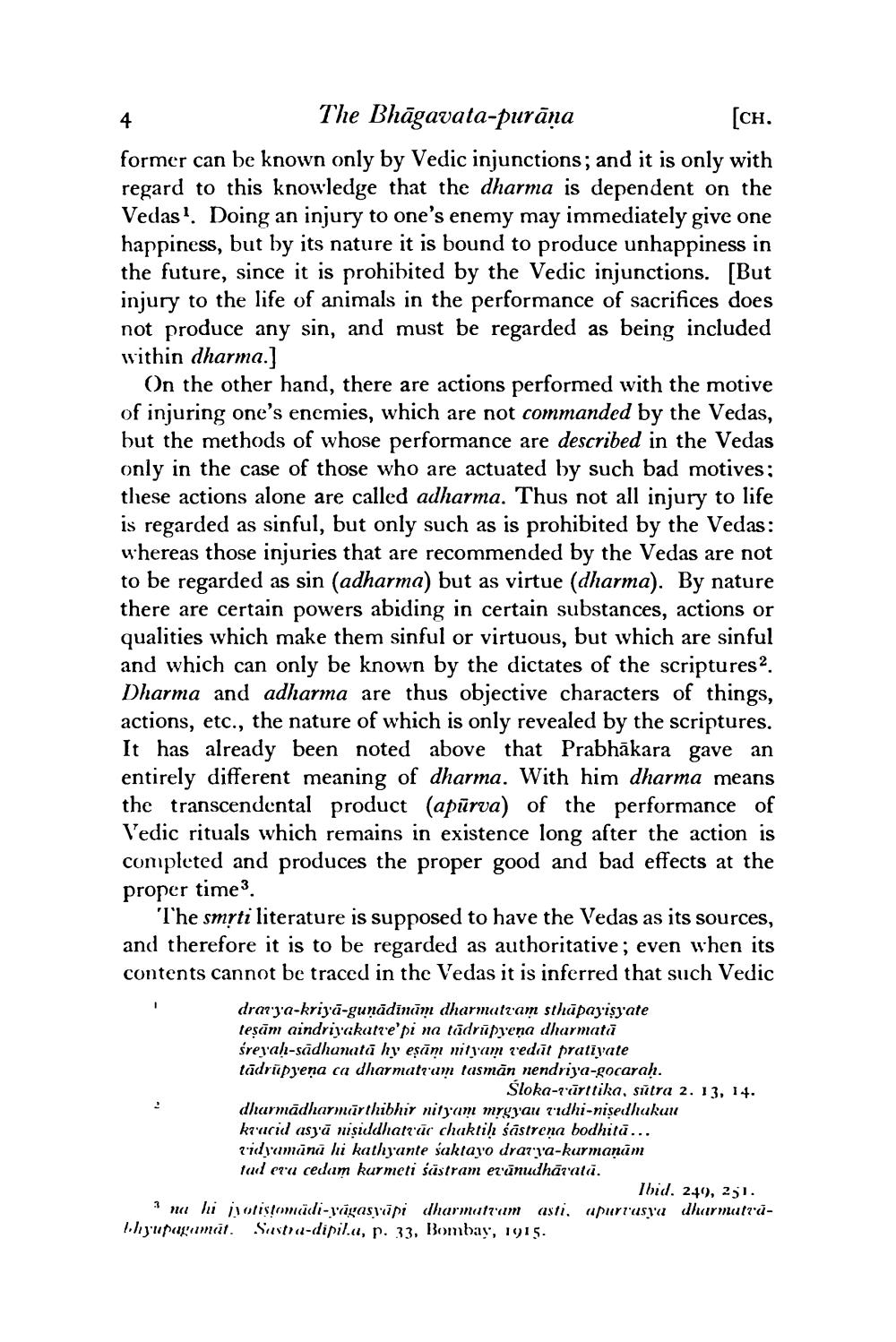________________
4
The Bhagavata-purāṇa
[CH.
former can be known only by Vedic injunctions; and it is only with regard to this knowledge that the dharma is dependent on the Vedas. Doing an injury to one's enemy may immediately give one happiness, but by its nature it is bound to produce unhappiness in the future, since it is prohibited by the Vedic injunctions. [But injury to the life of animals in the performance of sacrifices does not produce any sin, and must be regarded as being included within dharma.]
On the other hand, there are actions performed with the motive of injuring one's enemies, which are not commanded by the Vedas, but the methods of whose performance are described in the Vedas only in the case of those who are actuated by such bad motives: these actions alone are called adharma. Thus not all injury to life is regarded as sinful, but only such as is prohibited by the Vedas: whereas those injuries that are recommended by the Vedas are not to be regarded as sin (adharma) but as virtue (dharma). By nature there are certain powers abiding in certain substances, actions or qualities which make them sinful or virtuous, but which are sinful and which can only be known by the dictates of the scriptures2. Dharma and adharma are thus objective characters of things, actions, etc., the nature of which is only revealed by the scriptures. It has already been noted above that Prabhakara gave an entirely different meaning of dharma. With him dharma means the transcendental product (apūrva) of the performance of Vedic rituals which remains in existence long after the action is completed and produces the proper good and bad effects at the proper time3.
The smrti literature is supposed to have the Vedas as its sources, and therefore it is to be regarded as authoritative; even when its contents cannot be traced in the Vedas it is inferred that such Vedic
dravya-kriyā-guṇādīnām dharmatvam sthāpayiṣyate teṣām aindriyakatve’pi na tādrūpyeṇa dharmata śreyah-sadhanata hy esam nityam vedat pratiyate tādrūpyeṇa ca dharmatram tasman nendriya-gocaraḥ. Śloka-varttika, sutra 2. 13, 14. dharmādharmarthibhir nityam mrgyau vidhi-nisedhakau kracid asya miṣiddhatrac chaktiḥ śastrena bodhită... vidyamāna hi kathyante saktayo dravya-kurmaṇām tad era cedam kurmeti sastram evānudhāvatā.
Ibid. 249, 251.
3 na hi jyotistomädi-yāgasyāpi dharmatram asti, apurvasya dharmatrabhyupagamat. Sastra-dipila, p. 33, Bombay, 1915.




